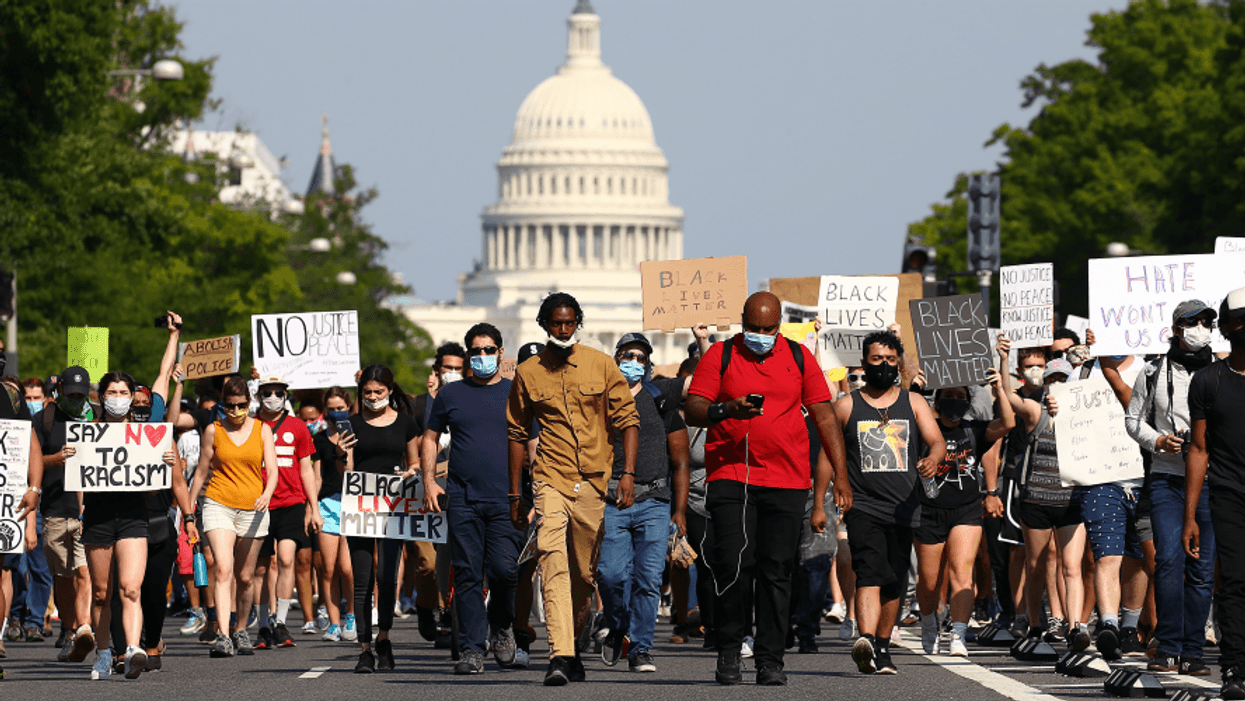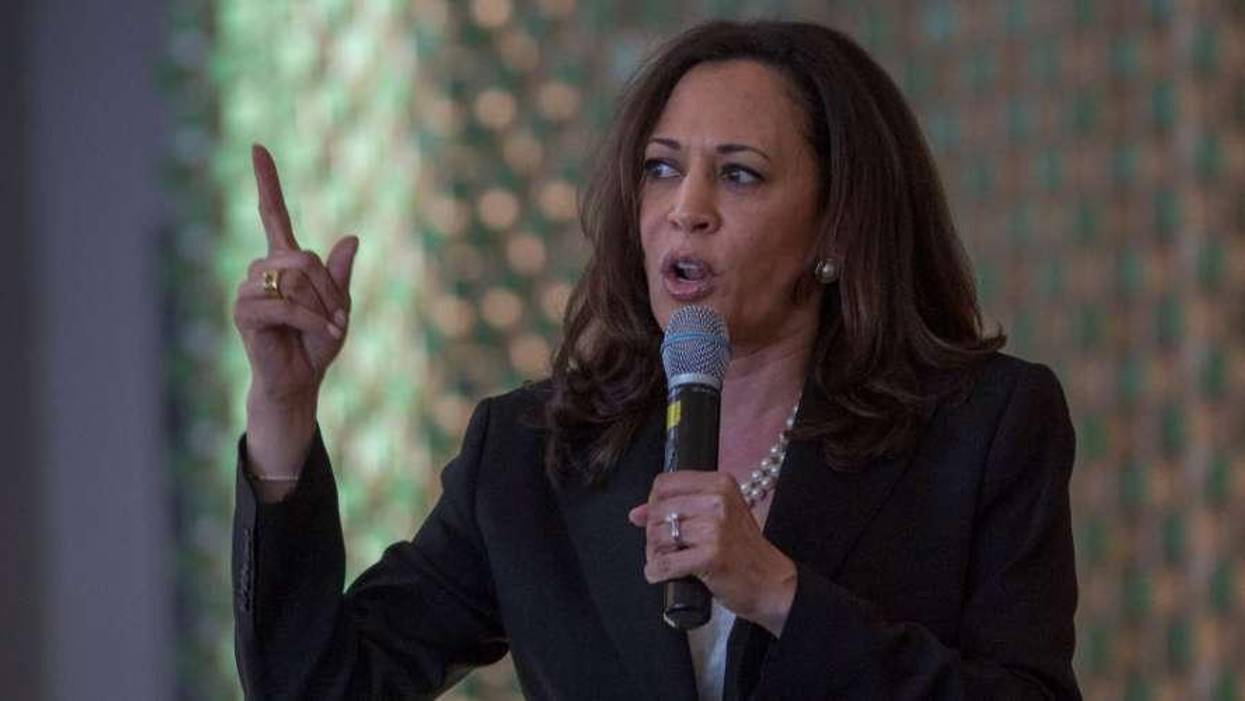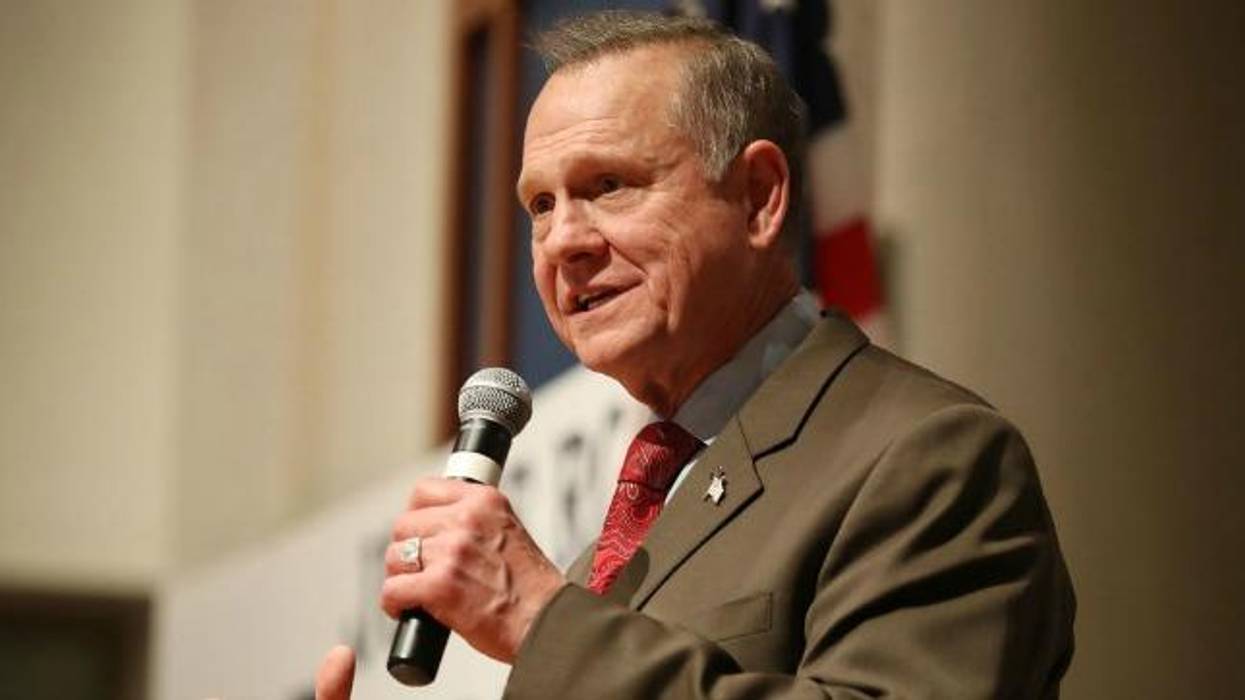Civil Rights Groups Urge Biden to Nominate Attorney General Dedicated to 'Bedrock Principle of Equal Justice'
"We need an attorney general... committed to ending discrimination; addressing white supremacy and hate violence; and advancing racial, gender, disability, ethnic, religious, immigrant, and LGBTQ justice."
Dozens of advocacy groups on Wednesday signed an open letter calling on President-elect Joe Biden to nominate an attorney general and other senior Justice Department officials "who have strong records with regard to civil rights enforcement and justice reform."
"Americans deserve an attorney general with a deep respect for the fundamental principles of liberty and justice for all, a demonstrated commitment to protecting and advancing the civil rights of everyone, and an unyielding dedication to transforming the criminal legal system."
--Civil rights groups
"The Biden-Harris administration must make civil rights enforcement a priority, and the Department of Justice is a pivotal leader in that effort," the letter, which was coordinated by the Leadership Conference on Civil and Human Rights, stated.
"We need an attorney general and other senior leadership who are committed to ending discrimination; addressing white supremacy and hate violence; and advancing racial, gender, disability, ethnic, religious, immigrant, and LGBTQ justice," the groups wrote. "We need leaders who understand the authority, processes, and mission of the department, and who will defend the bedrock principle of equal justice for all people in America."
The letter added that "Americans deserve an attorney general with a deep respect for the fundamental principles of liberty and justice for all, a demonstrated commitment to protecting and advancing the civil rights of everyone, and an unyielding dedication to transforming the criminal legal system."
Some of the letter's 76 signatories include Common Cause, Human Rights Campaign, NAACP, National Disability Rights Network, Planned Parenthood Federation of America, and Voto Latino.
The Leadership Conference on Civil and Human Rights, a broad coalition of over 220 national organizations, was founded in 1950 by civil rights icons A. Philip Randolph and Roy Wilkins, and Jewish Council for Public Affairs director Arnold Aronson.
As Biden's transition team reportedly winnows the field of prospective attorney general nominees down to a handful of names, some civil rights advocates have voiced concerns over the likely frontrunner, former Sen. Doug Jones (D-Ala.).
Some Democrats including Rep. James Clyburn (D-S.C.) have praised Jones, a former U.S. attorney in Alabama during the Clinton administration, for ending decades of impunity by prosecuting the last living Ku Klux Klansmen who murdered four young Black girls during the infamous 1963 bombing of the 16th Street Baptist Church in Birmingham.
However, some civil rights leaders say that any potential nominee should not be judged on the strength of a single case, and that Biden must focus on choosing someone who has a consistent record of upholding civil rights and advocating criminal justice reform.
"I would never look at one case for anyone to determine the full measure of their record on civil rights or criminal justice reform," Sherrilyn Ifill, president and director-counsel of letter signatory NAACP Legal Defense and Educational Fund, told the Washington Post last week.
"I think if you're looking at the full measure of their record, it's legitimate to ask how broad that record is in the matters that are of most interest to activists and communities of color around the country," Ifill added.


